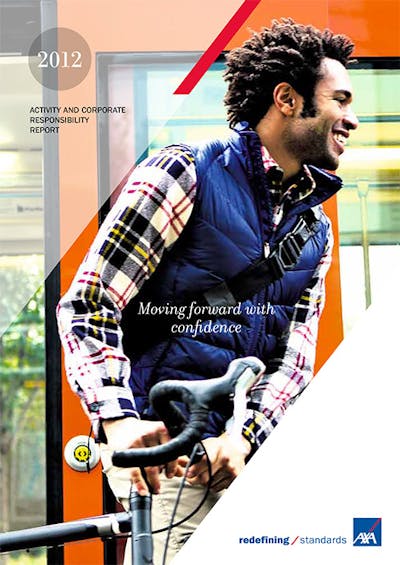
2012 Activity and Corporate Responsibility Report
Risk is an essential characteristic of any human activity. Without risk, there can be no progress. As Alice Steenland points out: There is no such thing as a life without risk. We must encourage an informed approach and share knowledge – it’s a subtle mechanism.
People need to have an accurate perception of risk to adopt a behavior designed to prevent or protect against such risk and its consequences. Insurance, which entails passing the risk on to a third party, is a good way of protecting oneself. But the insurer needs to have accurate knowledge of the risk it agrees to cover. This means informed decision-making so as to better select the risks, in full knowledge, and establish a framework for everyday business activities. The insurer must also imagine events that
are improbable
or even impossible,
to protect its customers over the long term and guarantee its capacity to meet its commitments in twenty or fifty years’ time.
AXA’s experts derive their knowledge, first of all, from field data and in-house analyses. But fundamental research into current and emerging risks is also crucial to enable our societies to prevent them or at least mitigate their consequences. This is the purpose of the AXA Research Fund. One day, for instance, insurers may be able to better cover disruptions in air traffic caused by clouds of volcanic ash, thanks to volcanologists and their vast knowledge.
AXA, whose business is protecting people over the long term, assumes its responsibility by encouraging the sharing.